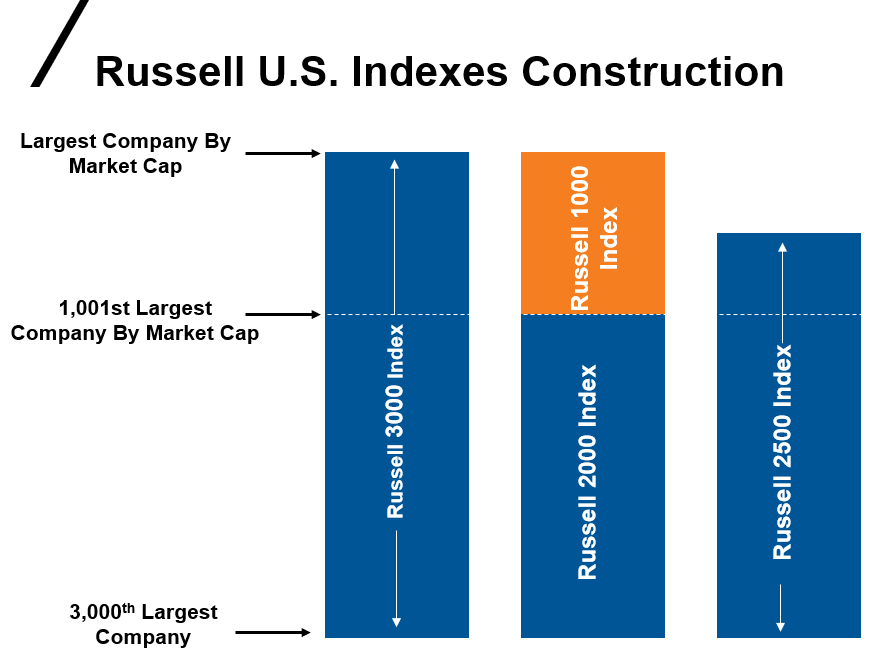Indexes on the move: Demotions/promotions and taxes
Doing better than your competition is generally a good thing. Success is often recognized by being promoted or moving up. Make good grades in school? You are moved up to a higher grade or an honors class. Your sports team wins the division? You may move up to a better or more competitive league. A publicly traded company outperforms its peers? The market may reward the firm with a higher market capitalization (stock price multiplied by shares outstanding).
Can promotion be a bad thing for taxable investors?
Sounds good for the company—but this could be bad news for taxable investors. If this success means the firm gets promoted from one stock index to another, it may be a taxable event for portfolios that track that index. Think of a small cap stock that is promoted to a midcap index. Fund managers who track that index would likely be forced to sell the stock—since it is no longer small. The stock is effectively booted out of the index and managers are left with the decision of holding a position outside of their benchmark or exiting the position all together.This promotion could be a taxable event that creates capital gains.
Check out the chart below. Looking at the Russell 2000® Index (the smallest 2,000 names of top 3,000 names by total market capitalization), the turnover due to names being promoted to a higher capitalization index has been just over 10% of the names out of the Russell 2000 Index since 2009. In fact, the most recent Russell 2000 Index reconstitution this past June (it is reconstituted annually) saw 175 names departing the small cap benchmark and 43demoted from the Russell 1000® Index to the Russell 2000 Index. These turnover amounts are not insignificant.
Click image to enlarge
Source: FTSE/Russell US Indexes Reconstitution 2020
Benchmark-aware active managers may not sell the promoted stock immediately, but they may well stop adding to the name and/or look to reduce the holding. Passive investment approaches are typically much more rules based and will likely make the sale sooner to match the index and reduce tracking error. Either way, the promotion/demotion of a stock creates a tax problem for benchmark-aware taxable investors.
How to mitigate promotion impact
For taxable accounts, having a broader index can reduce the amount of turnover as stocks get moved up (or down) in the benchmark they are tracking. Instead of using the Russell 2000 Index as the small cap benchmark, consider a broader mandate such as the Russell 2500 Index. This index is the smallest 2,000 names from the Russell 3000 Index PLUS the next 500 larger names. These additional 500 names allow for greater movement from small to midcap (or midcap to small cap) as these more volatile companies grow or shrink in size. Importantly, this expansion of the number of names and broader market cap helps to reduce the turnover for small cap investors.
While companies do get promoted/demoted from the Russell 2500 Index into a larger index, the cap size of the large or mega stocks in large cap index tend to dominate. The capital gain impact is not near as severe on the large cap index when a relatively smaller stock goes from the Russell 2000 Index to a larger index. The bigger impact is likely on the small cap index from selling out of the Russell 2000 to a midcap index.
The bottom line
We believe taxable investors should look to minimize non-productive portfolio turnover. An investments process that is forced to recognize a capital gain because a stock has outperformed can be a serious headwind to after-tax outcomes. Actively managed tax-managed mutual funds can:
- Establish benchmarks that allow for cap size movement of stocks and reduce forced turnover
- Work to opportunistically harvest losses throughout the year to offset future gains (productive portfolio turnover)
- Focus on holding period to minimize short term capital gains (often taxed at a higher rate)
- Minimize non-qualified dividends (often taxed at a higher rate)
- Use cash flows to reset cost basis as warranted
- Have preference for returns from long-term capital gains vs. short-term gains and unqualified dividends
Taken in total, these steps can help investors improve after-tax outcomes over time.
